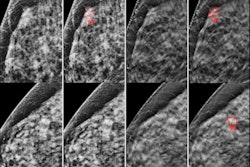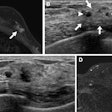Dear Women's Imaging Insider,
Artificial intelligence (AI) has shown promise for detecting breast cancer in women, with several recent studies touting its success when compared with radiologists. Some studies have even suggested AI can successfully coexist with human imaging readers in delivering high-quality patient outcomes.
But AI needs to overcome some hurdles before it can be more widely accepted by clinics around the world. Read what Dr. Emily Conant from the University of Pennsylvania had to say about the improvements needed in AI, as well as what opportunities await this technology, in this edition's Insider Exclusive.
As we go to press, we've learned that the U.S. Preventive Services Task Force on May 6 released a final research plan for its breast cancer screening recommendation update process. Read about how the plan addresses topics such as racism's effects on outcomes and the performance of current risk assessment tools.
In other news, researchers are investigating the use of AI to reduce mammography and digital breast tomosynthesis (DBT) workloads for radiologists. Check out our coverage to see how their AI triaging strategy performed.
Additionally, a team from Yale University found that AI can help classify masses identified on breast ultrasound. Learn how the group's AI algorithm compared with human imaging readers in our news report.
AI algorithms also can improve the performance of breast MRI, both by helping women avoid benign biopsies and by predicting nodal metastasis so that clinicians can better plan treatment. That's according to a presentation at the recent virtual American Roentgen Ray Society meeting.
Plus, check out the following women's imaging stories:
- Breast cancer screening mammography is underutilized in Jamaica, according to a new study, with breast cancer often diagnosed at an earlier age and more advanced stage than in the U.S.
- A recent symposium tackled the issue of rising breast cancer rates in India, with the country lacking a widespread breast screening program.
- Researchers found that breast MRI can identify hidden cancers before a woman undergoes planned bilateral prophylactic mastectomy, which can help clinicians determine whether sentinel lymph node sampling is needed before surgery.
- Researchers from the Cleveland Clinic attempted to figure out which screening test is most effective at reducing cancer-related mortality in older women.
Find more articles like these by regularly visiting your Women's Imaging Community!




















